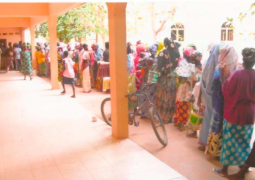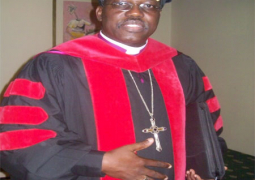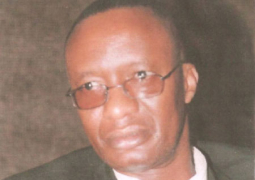The Female Lawyers Association of The Gambia, FLAG, in collaboration with the US Embassy in
In her remarks to welcome participants, FLAG President Janet R Sallah-Njie, among others, outlined her association’s objectives, which include providing an open forum for discussion on all matters affecting women and children.
According to her, the theme chosen for the seminar dealt with matters that affect women globally. “Research and statistics have shown that women are sexually assaulted as a means of weakening, subjugating and demoralizing the opposing factions in situations of armed conflict,” she said.
In her presentation, Veronic Wright, appeals counsel at the Office of the Prosecutor at the International Criminal Tribunal for
“In leading the global fight against impunity, the need, the will, the ability and, indeed, the capacity to bring to justice the perpetrators of violence against ordinary citizens is important. Indeed, the prosecution of sexual violence against women is a key component to stopping the global violence against women. Rape and other forms of sexual violence must be punished, and be seen to be punished, if the cycle of sexual violence and other forms of violence is to be stopped.”
According to her, the mandate of the Tribunal is to prosecute those most responsible for the atrocities in
She stated that the crime of rape is specifically defined as a crime against humanity under Article 3(g) of the statute. “Rape and other sexual violence can also be charged as a crime against humanity, under torture, persecutions on political, racial and religious grounds, and other inhumane acts (Article 3 (f), (h), (i), respectively),” Madam Wright stated.
According to the international prosecutor, the UN Resolution 1820, passed by the Security Council on 19 June 2008, underscored the predicaments of women and children in situations of armed conflict.
“It recognized that women and girls are particularly targeted by the use of sexual violence, including as a tactic of war to humiliate, dominate, instill fear in, disperse and or forcibly relocate civilian members of a community or ethnic group”.
Prosecutor Wright is of the conviction that sexual violence includes, but not limited, to rape, sexual assault occasioning actual bodily or mental harm, forced marriage, and sexual slavery.
“This is the reality of almost all armed conflicts in modern history. Evidence before the ICTR, since its inception, narrates horrific stories of rape and sexual violence in Rwanda that shocked the conscience,” she further stated.
Ms Wright also noted that investigations of sexual offences in the context of widespread violence is challenging in and of itself, because the victims are usually very highly traumatized and may sometimes suffer from memory loss.
“Even when they can fully recall their ordeal, they may find it difficult to recall exactly who sexually assaulted them,” she said.
This, she went on, is especially so in the Rwandan situation, where Tutsi women were gang-raped by groups of interhamwe militia men, and they found it difficult to pinpoint the individuals who were responsible.




